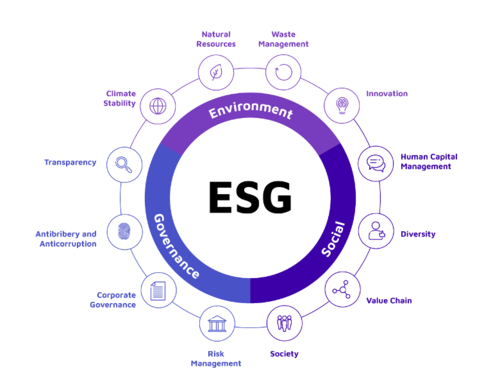
Comparing ESG Reporting Frameworks: GRI, IFRS S1 & S2, and TCFD
Why ESG Reporting Frameworks Matter
Meta Description: Confused about ESG reporting frameworks? Learn the key differences between GRI, IFRS S1 & S2, and TCFD—and why Philippine companies must align reporting with global standards for credibility and investor trust.
For Philippine publicly listed and large unlisted companies (LNLs), sustainability reporting is no longer optional. With the SEC Memorandum Circular No. 10, Series of 2022 mandating sustainability reports, firms are expected to adopt globally recognized frameworks to meet both regulatory and investor expectations.
But here’s the challenge: there are multiple ESG reporting frameworks out there. The most prominent today are the Global Reporting Initiative (GRI), IFRS Sustainability Standards (S1 and S2), and the Task Force on Climate-related Financial Disclosures (TCFD). Understanding how these frameworks differ—and where they overlap—can spell the difference between a compliance-driven report and an investor-grade sustainability report.
(Thinking of your company’s readiness? Book a discovery call with GCSS, Inc. today and get expert guidance on aligning your sustainability reporting with global standards.)
GRI: The Global Pioneer
The Global Reporting Initiative (GRI) has long been the most widely adopted ESG framework. It provides detailed guidelines on environmental, social, and governance disclosures, with an emphasis on materiality from a stakeholder perspective.
- Strengths: Broad coverage, stakeholder-focused, globally recognized
- Limitations: May be less investor-centric, sometimes criticized as compliance-heavy
For Philippine companies, GRI remains valuable, especially when reporting on social and community-related impacts.
IFRS S1 & S2: The New Global Baseline
In 2023, the International Sustainability Standards Board (ISSB) launched IFRS S1 and S2, designed to create a consistent global baseline for sustainability disclosures.
- IFRS S1: General requirements for sustainability-related financial disclosures
- IFRS S2: Climate-related disclosures, aligned closely with TCFD recommendations
Unlike GRI, the IFRS standards focus on investor decision-usefulness, ensuring sustainability data connects directly with financial performance and enterprise value.
For companies looking to attract green financing and international capital, IFRS standards are quickly becoming the go-to requirement.
TCFD: The Climate Lens
The Task Force on Climate-related Financial Disclosures (TCFD) framework zeroes in on climate risks and opportunities. Its four pillars—governance, strategy, risk management, and metrics/targets—help companies disclose how climate change impacts financial performance.
TCFD is not a standalone reporting framework anymore; it has been integrated into IFRS S2. However, regulators and investors still expect companies to demonstrate alignment with TCFD principles.
Choosing the Right Reporting Framework
So, which framework should Philippine companies adopt? The answer isn’t either-or—it’s both-and.
- GRI: Strong for stakeholder engagement and broad sustainability disclosures
- IFRS S1 & S2 / TCFD: Essential for investor-grade reporting and regulatory compliance
The best approach is often an integrated sustainability report that draws from multiple frameworks, ensuring both local compliance and global competitiveness.
(Not sure where to start? GCSS, Inc. helps companies map disclosures to multiple frameworks while maintaining efficiency and credibility. Learn more about our Sustainability Reporting services here.)
The Risks of Getting It Wrong
Failing to align with global frameworks can lead to:
- Regulatory penalties from the SEC
- Investor distrust due to incomplete or incomparable data
- Lost opportunities in sustainable finance and global markets
With investors and regulators demanding climate action, net zero strategies, and ESG accountability, companies cannot afford to take a tick-box approach.
Partnering with the Right Sustainability Consultant
This is where a trusted sustainability consultant comes in. At GCSS, Inc., we:
- Align sustainability reports with GRI, IFRS, and TCFD frameworks
- Help strengthen corporate governance structures around ESG
- Build auditable, scalable systems for data accuracy
- Ensure disclosures are future-proof for net zero transitions and green financing opportunities
A Call to Action for Philippine Companies
ESG frameworks are no longer academic. They define how investors, regulators, and global partners evaluate your company’s future. Philippine businesses that embrace these standards now will lead—not follow—in the decade ahead.
Don’t let reporting complexity hold your company back. Reach out at sales@gcssinc.com to get started with your ESG alignment.
Reach out at sales@gcssinc.com to begin your IFRS- and TCFD-aligned ESG journey. Book your discovery call here and talk to our experts today.
Follow GCSS, Inc. on LinkedIn and Facebook for the latest ESG trends, reporting best practices, and sustainability insights.
Subscribe to our newsletter for expert insights, practical frameworks, and trend analyses delivered weekly. For business leaders and executives, join the discussion and conversation here.
Lead the ESG conversation now—position your business for growth, credibility, and global relevance in 2025 and beyond.

Quick Links
Our Programs
© 2025 GCSS - Gaia Corporate Sustainability Solutions Inc..
